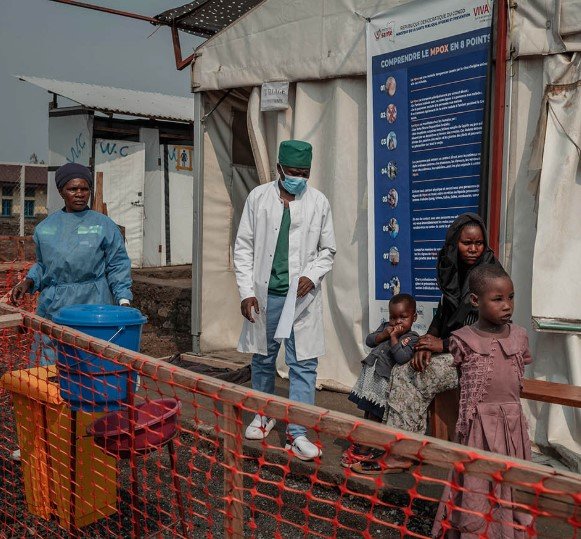Uganda is grappling with a worsening mpox outbreak, with confirmed cases climbing to 4,342 and the death toll reaching 31. The capital city, Kampala, remains at the heart of the crisis as health officials race to contain the virus’s spread.
Cases Surge, Kampala at the Epicenter
Uganda’s Ministry of Health reported an additional 25 new cases in the past 24 hours, with 12 of those emerging from Kampala — the country’s bustling capital. Since the outbreak began eight months ago, Kampala has consistently reported the highest number of infections. The densely populated urban environment, paired with close-contact living conditions, has created a breeding ground for rapid transmission.
Health officials emphasize that the numbers may still be an undercount, as many cases go unreported or are misdiagnosed. The ministry, supported by the World Health Organization (WHO) and other international partners, continues to strengthen efforts in surveillance and data collection to ensure a clearer picture of the outbreak’s scope.

Government Steps Up Response Measures
To combat the outbreak, Uganda’s health ministry has ramped up its public health interventions. The key strategies include:
- Enhanced surveillance systems to detect new cases faster
- Improved case management in hospitals and clinics
- Expanded risk communication and public awareness campaigns
- Community engagement to promote preventive behaviors
These efforts are crucial, especially as health experts warn that mpox remains a serious threat to vulnerable populations, including children, the elderly, and those with weakened immune systems.
“We are doing everything possible to slow the spread, but the public must remain vigilant,” said Dr. Jane Ruth Aceng, Uganda’s Minister of Health, in a statement.
Understanding Mpox: Symptoms and Transmission
Mpox, formerly known as monkeypox, is an infectious disease that causes a painful rash, fever, headache, muscle aches, and swollen lymph nodes. The rash, which often starts on the face, can spread across the body, including the palms and soles. It progresses from flat sores to fluid-filled blisters, eventually crusting over and falling off.
The virus spreads mainly through close, prolonged contact — skin-to-skin, mouth-to-mouth, or respiratory droplets from someone with mpox. Household transmission is common, and intimate contact increases the risk.
According to WHO, the virus has an incubation period of 1 to 21 days, with symptoms lasting two to four weeks. While many people recover fully, those with compromised immune systems face a higher risk of severe illness.
Public Health Emergency: A Global Concern
In August, the WHO classified mpox as a public health emergency of international concern — a move aimed at mobilizing global resources and awareness. Uganda’s current surge aligns with WHO’s earlier warnings about the potential for international spread.
Countries worldwide are monitoring the situation closely. The outbreak has reignited discussions on vaccine availability, access to antiviral treatments, and the need for stronger healthcare systems to handle emerging infectious diseases.
The Road Ahead
Uganda’s health authorities remain committed to curbing the outbreak, but the road ahead looks tough. Vaccines are not yet widely available, and misinformation surrounding mpox persists, complicating public health efforts.
Health experts stress that early detection, timely medical care, and community cooperation are crucial to bringing Uganda’s mpox crisis under control. For now, the country braces for what may still be a long fight against the relentless virus.
